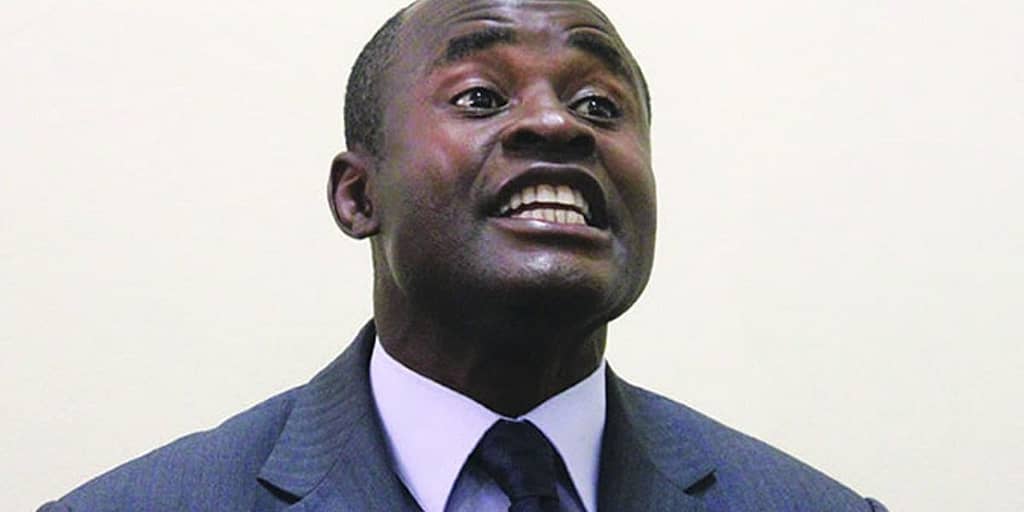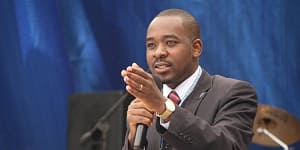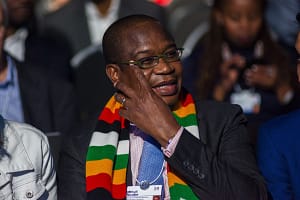Zanu PF rushes patriotic bill through parliament

Norton MP Temba Mliswa said Chamisa accepted perks from Mugabe but wants his MPs to turn-down loans
PRESIDENT Emmerson Mnangagwa’s ruling Zanu PF party purportedly plans to fast-track a controversial law that would punish citizens deemed “unpatriotic”.
The National Assembly last week adopted a motion calling for the crafting of the Patriotic Bill, whose draft was accepted by government in October 2020.
The proposed law will criminalise and impose stiff penalties on private correspondence by what were termed as “self-serving citizens”, with foreign governments or any officer or agent.
Activists say the law is targeted at government critics and opposition leaders like Citizens Coalition for Change (CCC) leader Nelson Chamisa and his deputy Tendai Biti, whom government claims called for sanctions to be imposed on the country, as the country heads towards the 2023 general elections.
Government information tsars were last week infuriated when journalist-cum-activist Hopewell Chin’ono addressed a human rights summit in Geneva, Switzerland, where he detailed human rights abuses and failure to invest in public health in the country.
The ruling party has now sponsored a shadowy pro-Mnangagwa organisation called Varakashi4ED to petition Attorney-General Prince Machaya to compel him to expedite the drafting of the Bill.
“As Varakashi4ED, we are outraged and concerned that in spite of the destructive effect of the sanctions to Zimbabwe being so obvious and so acknowledged by a majority of the international community, there are some Zimbabweans who have proved to be unpatriotic malcontents, hell bent on begging for the sanctions to stay on,” the petition read.

“We, therefore, call upon your (Machaya’s) esteemed office to do its part pronto and assist the Government of Zimbabwe to enact the Patriotic Act, which should be equivalent of the United States of America’s Logan Act, which in essence prohibits and criminalises Zimbabwean citizens and residents from engaging in unauthorised foreign negotiations, parallel diplomacy, foreign lobbying, sanctions incitement and foreign political and economic relations with countries in dispute with Zimbabwe or hostile to Zimbabwe.”
To give credence to the controversial Bill, Zanu PF has been using former opposition members who have defected to the ruling party to come up with messages and videos apologising to Zimbabweans for their role in opposition politics and begging for sanctions.
These include National Peace and Reconciliation Commission commissioner Obert Gutu, former MDC legislators Tongai Matutu and Gabriel Chaibva, who have frequently churned out videos accusing the opposition of begging for imposition of sanctions.
During debate on the motion to enact the Bill in Parliament last week, Umzingwane MP Levi Mayihlome (Zanu PF) said calling for sanctions was a threat to national security.
“In my view, that is a security threat, and whichever way one looks at it, calling for sanctions is actually a threat to national security. There has to be legislation to guard against the threat to national security,” he said.
Zanu PF National Assembly chief whip Pupurai Togarepi yesterday told NewsDay that the Bill would be brought before Parliament as soon as the processes by the Executive were completed.
“There have been around 10 motions by MPs agitating for enactment of the Patriotic Act. The recent debate in Parliament was instigated by a petition by an organisation called Zimbabwe Anti Sanctions Trust. The motion was adopted and we expect Justice minister Ziyambi Ziyambi to bring the Bill as soon as possible,” Togarepi said.
Observers said the motivation of the proposed law was the desire to target opposition players.
“It is clear what the motive of that Bill is, and who the likely would-be victims are. Any legislation that is intended to suppress freedom of speech is undemocratic and counterproductive,” Methuseli Moyo, a political analyst said.
“It is clear the Bill is meant to curtail criticism of the authorities by opposition agents. Not liking or liking a regime has nothing to do with nationalism. A party in power and its attendant systems and practices are not the nation. Unfortunately, that distinction has been overlooked.”
Another political analyst Effie Ncube said: “The whole intention is to close down the little that remains of the democratic space and silence dissenting voices in the run up to the 2023 elections. Zanu PF is not assured of victory in a free and fair election where all voices are allowed space. Therefore, the Patriotic Bill is going to be used to undermine the ability of the opposition parties and civil society organisations to function.”
Political analyst Farai Maguwu said Mnangagwa’s administration risked to reverse the progress made since his ascendancy to power in November 2017.
“The Bill in its current state has many grey areas that may result in it being misinterpreted and weaponised to stifle civic liberties and mutilate constitutional rights. It will be a huge dent to the new dispensation, whose birth was welcomed as a beginning of a new chapter for human rights in Zimbabwe. Fast-tracking it will create impressions that it’s meant to further close civic space ahead of 2023 elections,” Maguwu said.
Norton Independent MP Temba Mliswa said history will record him as one of the people who opposed the draconian bill.
—NewsDay





